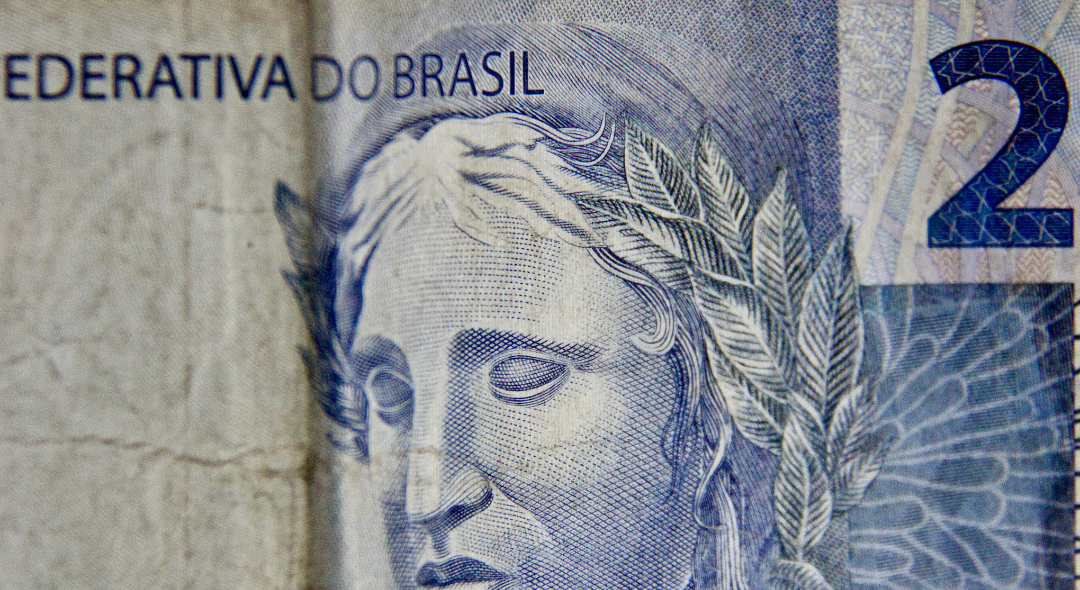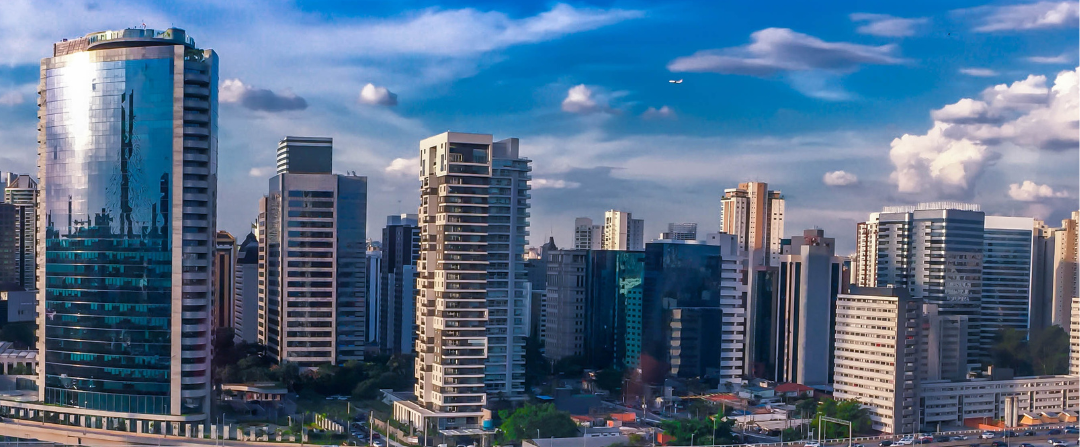Top Banks in Brazil
Brazilian banks continued to top the list of the top 50 banks in Latin America.
Brazilian banks continued to top the list of the top 50 banks in Latin America despite the negative impact of the devaluation of the real and most domestic currencies compared to the U.S. dollar on their asset worth over time.

In 2021, the top six stayed the same as in 2020. Ita Unibanco Holding S.A., Banco do Brasil SA, Banco Bradesco S.A., Caixa Econômica Federal, and Banco Santander (Brasil) S.A. were the top five banks by assets, and they are all Brazilian institutions. Grupo Financiero BBVA México SA de CV came in sixth place.
The ranking improved in 2022 when Banco Citibank S.A. climbed nine positions to number 27. According to Moody's, the Brazilian bank's market position strengthened in January due to its focus on wholesale banking.
According to Moody's, Citi Brazil's main issues include maintaining a strong pace of earnings production and diversifying toward fees in light of the intense competition from other foreign banks.
As a result, it's still being determined whether the bank will be able to expand further in 2022.
In 2021, exchange rate fluctuations cost Ita $27.07 billion, or over 7% of its $371.38 billion in total assets. However, if the trend of strengthening currencies from this year continues, 2022 might be very different.
Top banks in Brazil: Itaú Unibanco
Itau Unibanco is the biggest bank in Latin America and Brazil regarding assets, market value, and personnel.

With a global presence in Chile, Panama, Peru, Colombia, Paraguay, Uruguay, Argentina, France, the United States, the Bahamas, Canada, the United Kingdom, Spain, Germany, Switzerland, Portugal, Japan, and the United Arab Emirates, it conducts business through more than 4,100 physical branches and 45,000 ATMs.
In addition, the business offers a wide range of retail, wholesale, private, SME, and online banking services. Global Finance cites this bank as being the most secure in Brazil.
Holding S.A. Itau Unibanco provides banking services to private and public clients in Brazil and 18 other countries.
Additionally, it holds a sizable minority share in XP Investimentos, an independent brokerage and provider of financial services that provides an open architectural platform for asset management and investment products.

The bank is publicly traded, and its Brazilian headquarters are in So Paulo. Its services and offerings include asset management, investment banking, insurance, private equity, and retail banking.
In Brazil and 18 other nations, Holding S.A. Itau Unibanco offers banking services to private and public clients.
Furthermore, it owns a sizable minority stake in XP Investimentos, a private brokerage and financial service provider that offers an open architecture platform for asset management and investment products.
The bank is traded openly, and So Paulo serves as its country headquarters in Brazil. Its services and products include asset management, investment banking, insurance, private equity, and retail banking.
Caixa Econômica Federal
Latin America's largest 100% government-owned financial institution was established to collect national funds in 1861. Caixa is now regarded as an instrument for public investment and enhancing Brazilians' access to financial services.

It offers savings and checking accounts, internet banking, investment services, and financing for housing, sanitation, infrastructure, and urban development projects.
Through its digital social savings accounts, already utilized to pay for emergency relief related to the pandemic, Caixa will begin releasing emergency FGTS withdrawal credits in June.
The money can be put towards paying bills using the Caixa Tem app. To make purchases in physical stores, customers can utilize the virtual debit card and contactless payments by scanning Q.R. codes (via a collaboration with Cielo).
The bank has already processed over R$60 million in electronic payments in less than a week. The bank also reported a 22.2% decrease in Q1 net income due to increased loan provisions during the crisis.

The oldest bank in Brazil, Caixa Economica Federal (CAIXA), is currently the largest in client base, savings, and mortgage lending.
It serves 92 million customers through 4,200 banks, 13,000 lottery locations, 10,000 third-party sales locations, 29,000 ATMs in self-service restrooms and gas stations, 5,500 municipalities, and thousands of Brazilian towns.
Additionally, it has representative offices in Japan, Venezuela, and the U.S. The Federal Government has complete control of the bank. According to the World Finance magazine, CAIXA has the most fantastic mobile banking app and is Brazil's finest consumer digital bank.
Banco Do Brasil
Five business segments, including banking, investments, fund management, insurance, and electronic payments, make up the activities of Banco Do Brasil.

Thus, Banco do Brasil offers services related to the management of credit and debit cards, such as capture, transmission, processing, and financial settlement; it provides deposits, loans, and other banking services in the retail, corporate, wholesale, and public sectors.
To deal with the global coronavirus pandemic, the bank—a state-controlled lender—increased client credit limits by $19 billion for people, companies, and local governments.
Banco do Brasil intends to maintain approximately 10% of its workers partially working from home permanently as corporate profitability declines dramatically.
In addition, it may save up to 180 million reais a year by freeing up between 15 and 20 rental buildings.
In addition to savings and checking accounts, it offers retail, corporate, and government banking services like mortgages, consumer and rural loans, credit and debit cards, foreign exchange, insurance (life, health, and auto), fund management, investment banking, and more.

In 3,550 Brazilian municipalities, B.B. keeps branches and ATMs operational. There are over 21 million users of the B.B. app. Shares of the Bank are traded on the OTC market and the Sao Paulo Stock Exchange.
Banco De Brasil is Brazil's second-oldest bank. In addition to savings and checking accounts, the bank offers mortgages, consumer and rural loans, credit and debit cards, foreign exchange, life, health, auto insurance, fund management, investment banking, and more.
In 3,550 Brazilian municipalities, B.B. keeps branches and ATMs operational. There are over 21 million users of the B.B. app. Shares of the Bank are traded on the OTC market and the Sao Paulo Stock Exchange.
Banco Bradesco
Banco Bradesco was established in 1943. The company serves over 70 million customers nationwide through 3,050 retail branches, 3,915 service points (P.A.s), 822 express service points, and 708 business units.

It has subsidiaries in Mexico, Argentina, Luxembourg, the United States, the United Kingdom, and the Cayman Islands, in addition to New York and London offices. Banco Bradesco reported total assets of $289 billion and assets under management of $439 billion as of March 31, 2020.
Banco Bradesco S.A. provides financial and insurance services. Demand deposits, time deposits, interbank deposits, and checking and savings accounts are all accepted.
The eight rating companies that cover its stocks have recently published various research papers on the bank. The company's most recent financial results were worsened credit and increased provisioning.
Banco Bradesco said in April that it planned to borrow money from the nation's central bank using its credit portfolio as security. As a result, the average analyst forecast for Banco Bradesco's full-year earnings for the current fiscal year is $0.40 per share.
Hedge funds and other institutional investors recently changed their BBD holdings in light of the updated reports.
Banco Santander Brasil
Having more than 2,100 branches and service centers, over 29 million customers, 44,800 employees, and 12,980 private ATMs, Banco Santander Brasil, is the largest foreign bank in the country.

In addition to a $69 billion loan portfolio and $72 billion in customer deposits, Santander Brasil claimed total assets of $162 billion as of March 2020. By June 30, 2021, the company's market value was almost $30 billion.
Banco Santander Brasil, a member of the Santander Group with its headquarters in Spain, specializes in retail banking and maintains strong ties with wholesale banks.
It partnered with Banque PSA Finance, launched the online pre-paid card system "ContaSuper," which later changed into Superdigital, and acquired "GetNet," a technology company specializing in electronic payment solutions.
It formed a joint venture in the payroll loan and credit card segments and agreed with American Airlines Inc.
The deal involved the promotion and issuing of credit cards with a co-brand. Additionally, it has purchased a 70% stock stake in the business.
Safra
One of the biggest privately held banks in the world, Banco Safra, is a component of the wider Safra Group of banks and financial organizations.

The Group, which is headquartered in the U.S. and has operations in Europe, the Middle East, Latin America, Asia, and the Caribbean, is owned by the family of Lebanese-Brazilian billionaire banker Joseph Safra.
One of the biggest Swiss banks is J. Safra Sarasin, whereas Safra National Bank of New York specializes in private banking in the U.S.
A commercial bank with comprehensive services is Banco Safra S.A. The bank expands its operations through its significant Brazilian subsidiaries into leasing, securities underwriting, investment fund management, stock brokerage, insurance, trade financing, asset management, and treasury operations.
One of the Safra children allegedly departed the bank's board of directors last year due to disagreements over a digital wallet project. The CEO of the business left about the same time as well.

The bank declared its transition into riskier assets following management changes.
It established a new section to handle alternative proprietary investments, such as exceptional situations, illiquid debt, real estate transactions, and private equity ventures.
As Safra expands its operations into the U.S. market with a new acquisition offering called SafraPay, it will benefit more from ACI's cloud-enabled solutions and API connections.
BTG Pactual
BTG Pactual was established as a brokerage in Rio de Janeiro in 1983. It has been managed as a partnership through an organization created amongst its original partners.

The organization has expanded significantly over its thirty-year existence, turning into a full-fledged bank with numerous offices around Brazil. It has also emerged as Latin America's top investment bank.
The bank provides various financial services, including investment banking, corporate financing, brokerage services, asset management, wealth management, consumer and commercial banking, merchant banking, and real estate investments, in conjunction with its subsidiaries.
2013 saw Banco BTG Pactual purchase timberland management contracts from Regions Timberland Group ("RTG") through its subsidiary BTG Pactual Timberland Investments Group LLC.
As a result, BTG Pactual is one of the most prominent independent forest managers globally and the largest in Latin America.
The bank recently declared that it intends to use the ReitBZ token for upcoming Security Token Offerings formally launched on the Tezos network (STOs).

BTG Pactual has been linked to several well-known scandals. For example, its creator, Andre Esteves, was imprisoned due to a corruption investigation.
Significant client withdrawals throughout the investigation compelled the bank to eliminate positions and sell off its assets. Nevertheless, Esteves was found not guilty, and the company prospered.
Despite all of it, a questionable reputation persisted. Brazilian federal police searched the bank's headquarters in 2019 because they were selling stakes in African oilfields. Later that year, investigations into alleged improper interest rate decision leaks involved BTG, former central bank, and finance ministry officials.




or Want to Sign up with your social account?